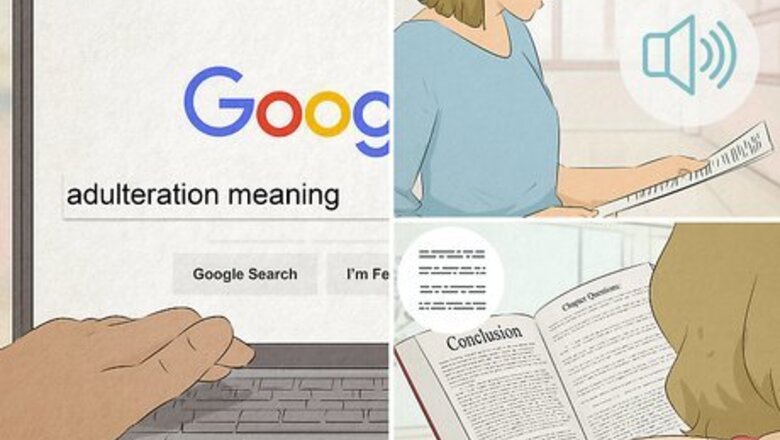
views
How do I read effectively with dyslexia?
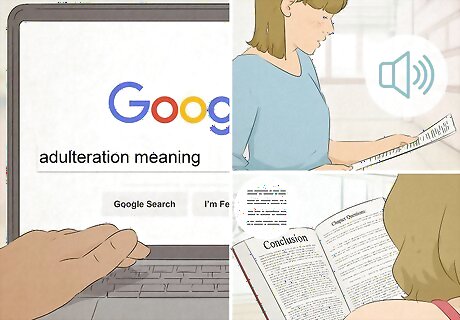
Read slowly so the material is easier to understand. Reading can be tough with dyslexia, and you might feel intimidated if you have to do a lot of reading for a test. The best way to improve your comprehension is to go slowly and don’t rush. Break down each word into syllables so you recognize what it means. This way, you won’t feel as confused while you’re reading. If you come across any words you don’t recognize, look them up so you understand what you’re reading. Reading out loud is a great way to keep yourself focused. Try to break your reading into small sections too. It’s harder to concentrate if you read a lot at once and get tired.
What are some ways I can improve my memory?
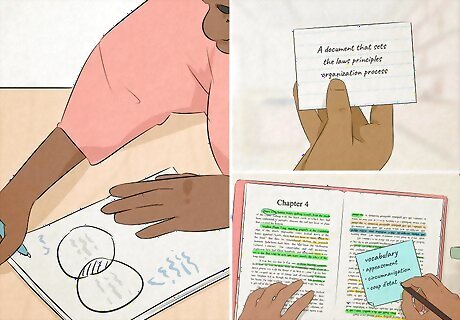
Try using visual cues and exercises to stimulate your memory. Colors, tables, diagrams, and pictures all stimulate the brain and make information a lot more memorable. Try to use as many visual aids while you’re studying as possible. Either find them in your textbooks or online, or make your own to fit your studying needs. For example, on a test where you need to compare and contrast things, you could make your own Venn diagram to break things down. Even simply color-coding your own notes gives you visual cues to spark your memory. Flashcards are great for color-coded visuals too. Even better, you can bring them with you anywhere and get some extra studying in. You could also try to associate pictures with certain words or reading passages. This triggers your brain to remember them better.
How do I manage my time with dyslexia?
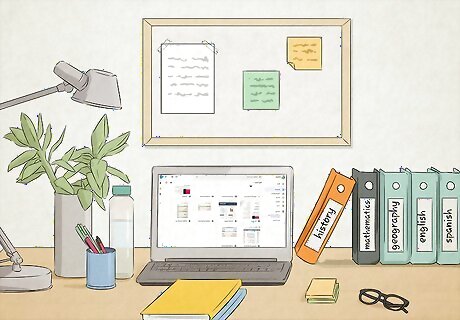
Stay organized to make the most of your study time. Keep all of your books and study materials neat and tidy so you don’t have to waste time finding everything. Writing your notes neatly, using post-its in your books, and color-coding your study sheets all help you study effectively without losing any time. Having a designated study spot can help too. Working in the same spot tells your brain that it’s time to study.
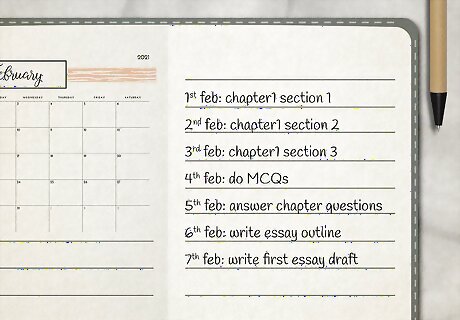
Break large tasks into smaller ones so they're easier to complete. It can feel overwhelming to focus on large tasks. The best way to get around this is by dividing those tasks up. That way, you can focus all your energy on the task at hand without burning out or getting tired. For example, if you have to study a chapter for a math test, break the chapter into equal sections. Then go through one per day leading up to the test. This also works for written assignments. If you have to write a 10-page paper, try breaking it up into 3 or 4 sections and writing one per day.
What kind of technology or tools are good for dyslexics?
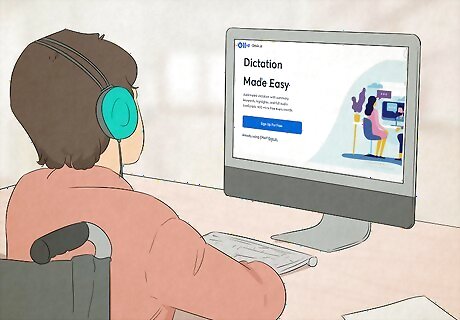
Audio, dictation, and visual programs are some of the best. These digital tools are great for making work more fun and sparking your memory. Use as many as you can to make studying easier. Audio programs can read assignments and questions to you out loud. This is helpful if you have trouble following written instructions. Many school libraries have this software available. Dictation programs are good if you have trouble translating your thoughts into writing. You can just recite what you’re thinking or reading, and the program will put it into text. Visual aids like PowerPoint or Prezi are full of colors, tables, and pictures to help keep you focused.
How do I avoid forgetting about tests and assignments?
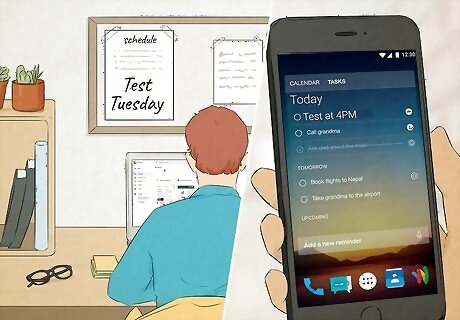
Carefully plan and schedule your work. Keep a planner or use the calendar in your phone to write down any assignments that you have. Get into the habit of checking the planner every day to make sure you don’t miss any assignments. Also set reminders for yourself. If you have a test tomorrow and need to study, set an alarm to go off at 4 PM to remind you that it’s study time. As a lower-tech solution, some dyslexics write notes to themselves at home to remind them of things. You could keep a whiteboard in your room and write “Test Tuesday” so you remember to study.
What subjects are dyslexics good at?

Dyslexics can get good at any subject with hard work and dedication. There aren’t any particular subjects that dyslexics are better at. The most important thing is to invest in yourself and develop strong study habits. This way, you can tackle any subject. Dyslexics do tend to have less trouble with math because they might find numbers easier to follow than words. This isn’t universal, however, and some dyslexics get confused when looking at numbers.
Can I still go to college if I have dyslexia?

Of course you can still go to college! There’s no reason at all that someone with dyslexia can’t handle college work. Not only can you attend college, but you can excel! If you’re preparing to go to college, here are a few skills to develop: Good time management skills. You’ll have to juggle a lot in college, and your school won’t organize your schedule for you. Work on scheduling and planning out your time to stay organized. Self-discipline. Your parents and teachers won’t be able to keep you on track, so work on disciplining yourself to work hard. Reading skills. College-level reading is a bit harder than you’re used to, so practice reading as much as you can.
What types of jobs are dyslexics good at?

Dyslexics can do anything they want to do! Studies show that there is no career choice that suits dyslexic people better, so you don’t have to worry about shaping your career around it. It’s much better to follow what you enjoy or are good at. This is a better indicator of career success than any learning problems you might have. Dyslexics can even do well in reading-heavy careers like law or medicine. There’s no reason you shouldn’t follow your passions just because of dyslexia.
Are there ways for me to get help if I need it?

Absolutely, there are many ways you can get help. Never hesitate to reach out to family, friends, guidance counselors, teacher, and tutors for assistance. There is always someone who can help you if you need it. Talk to the guidance counselor at your school to find out what resources are available, like targeted help or small group intervention. Asking your friends or family to proofread your work before you hand it in is a good way to catch any mistakes. Most schools have writing or reading tutors that can be a huge help to improve your study skills. If not, consider hiring a private tutor. Don’t be afraid to reach out to your teacher or professor. Ask for any accommodations that you might need, like extra test time, a study guide, or tips on how to prepare.


















Comments
0 comment